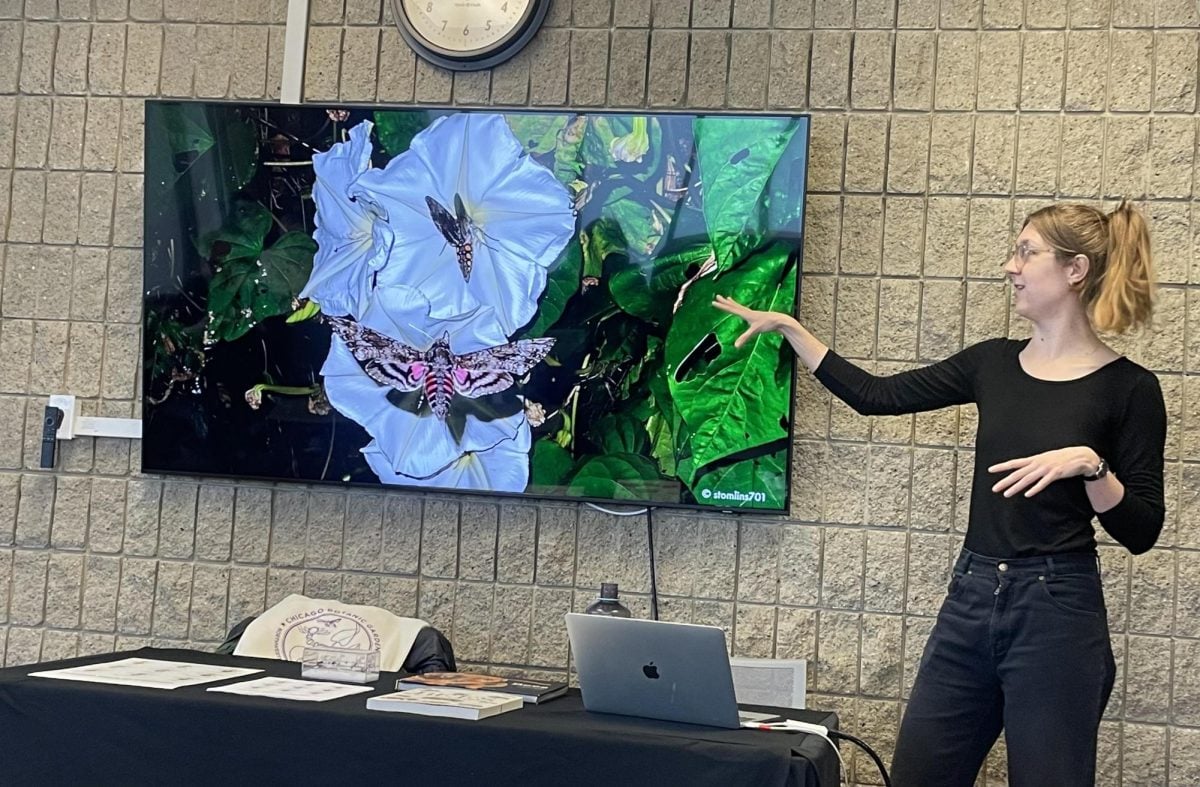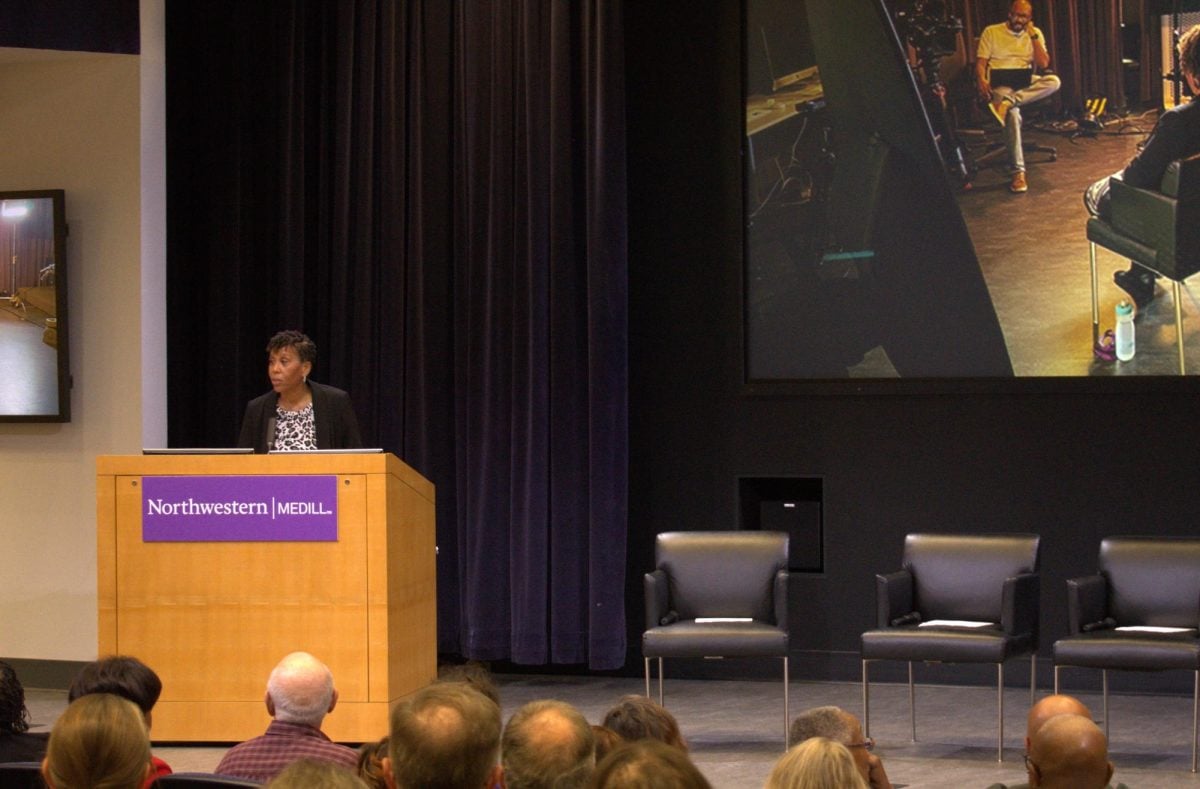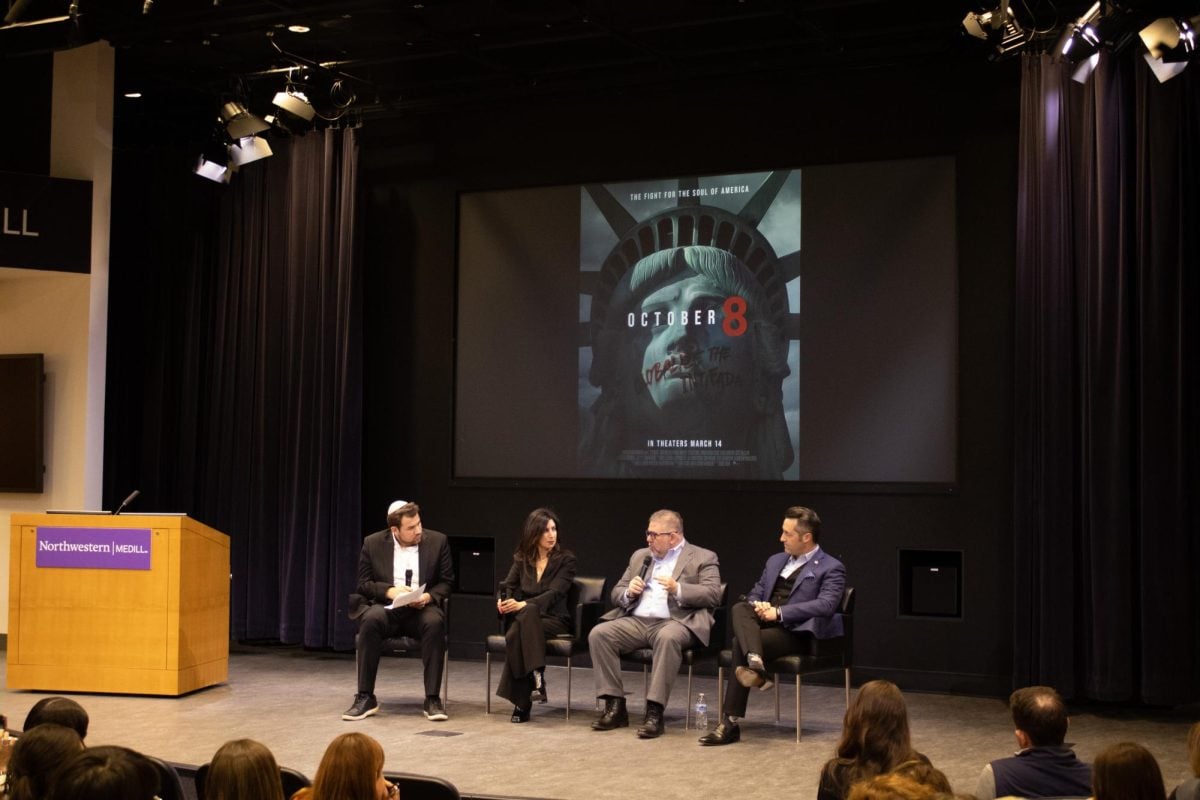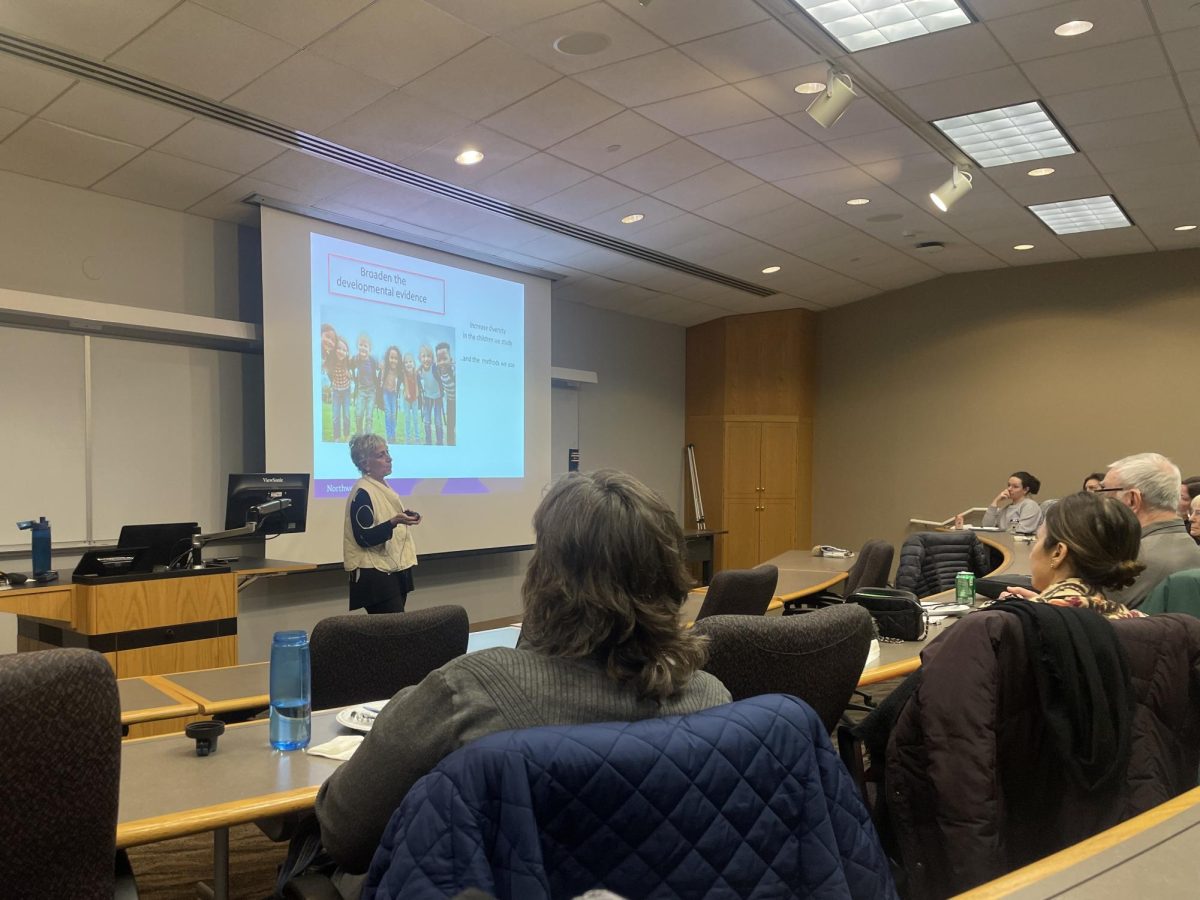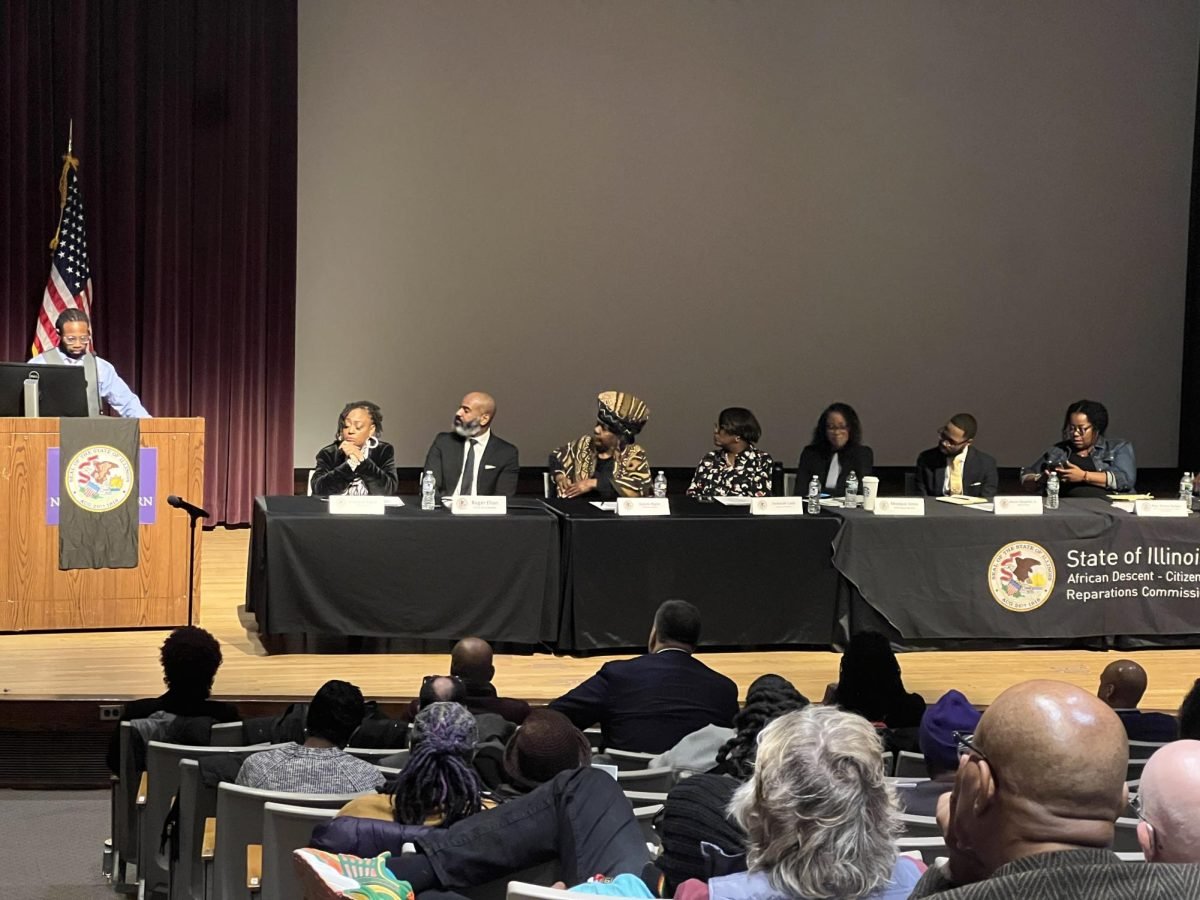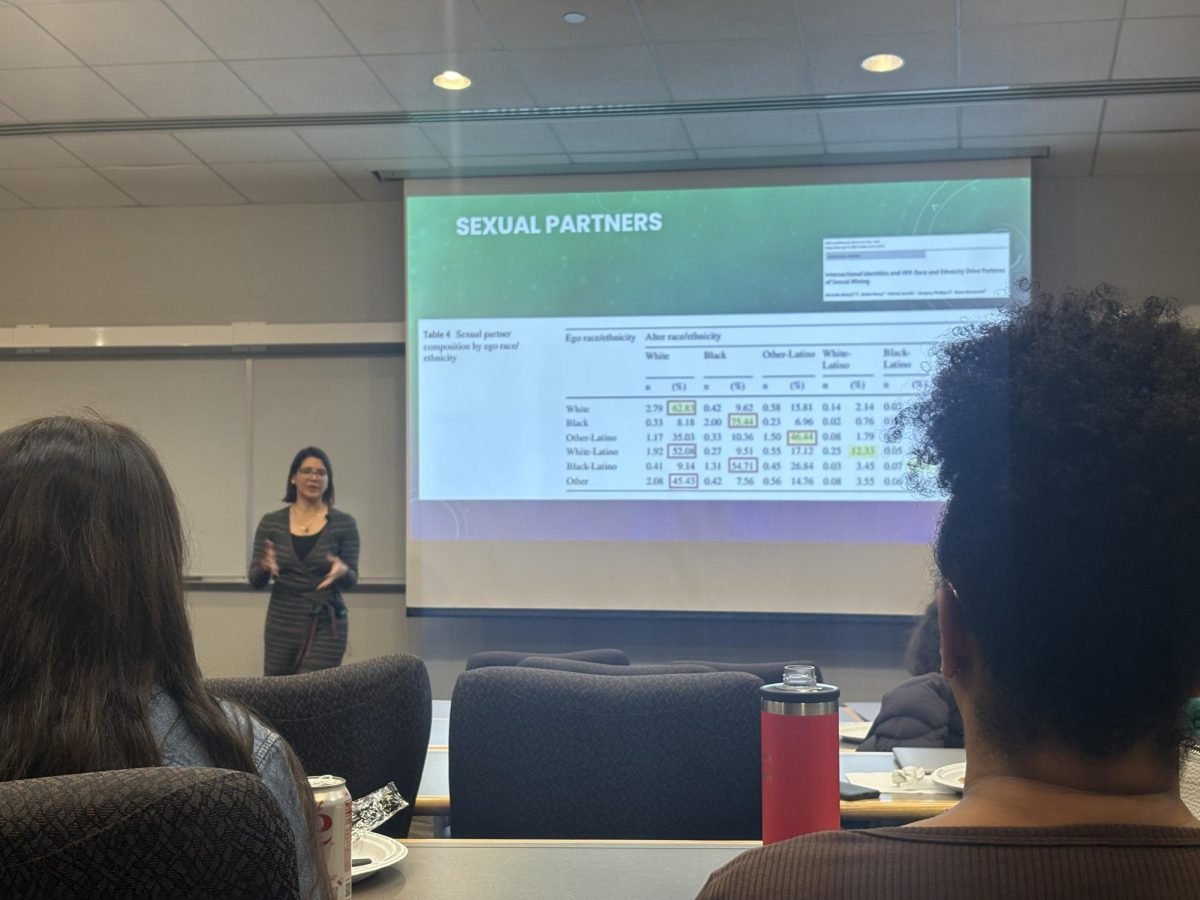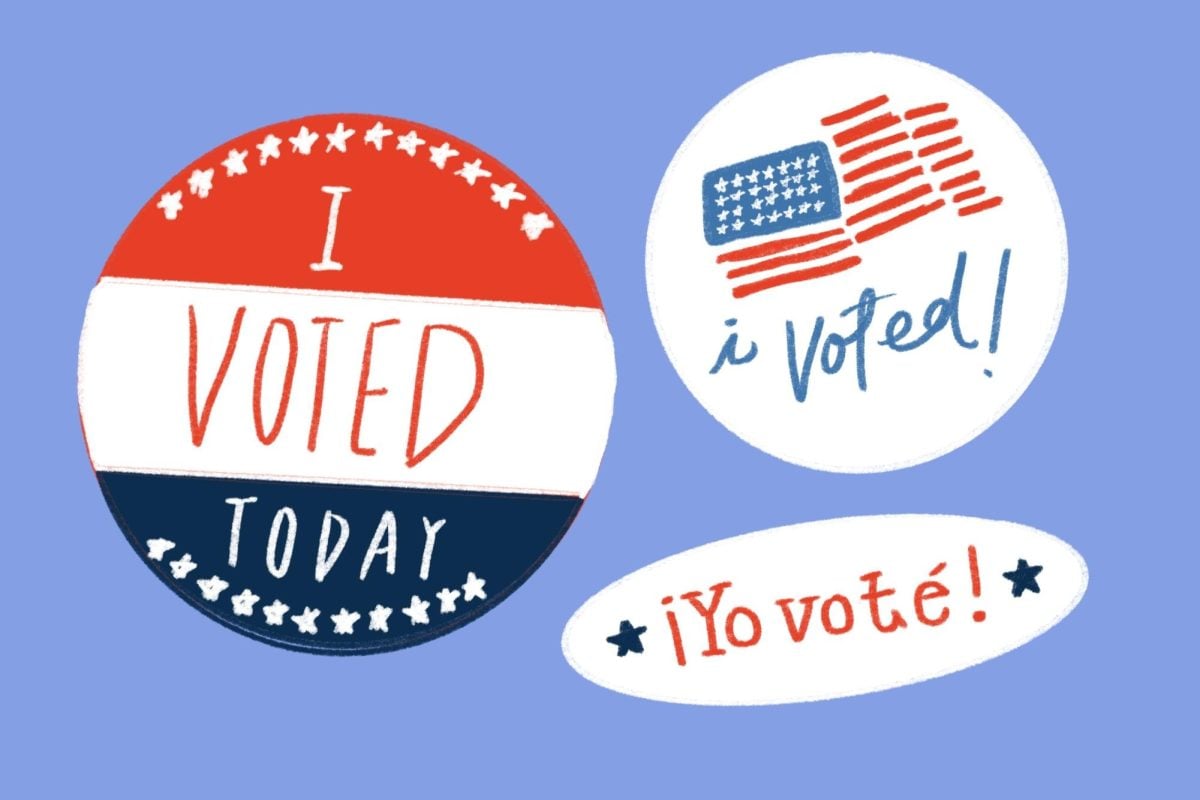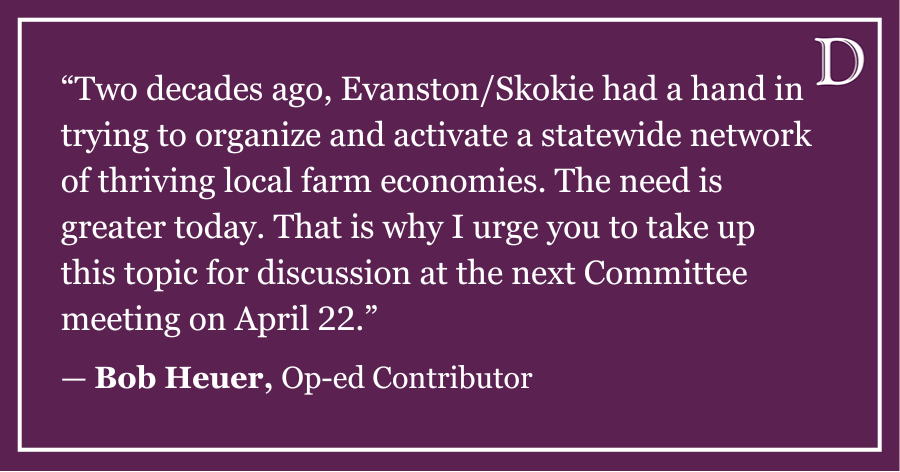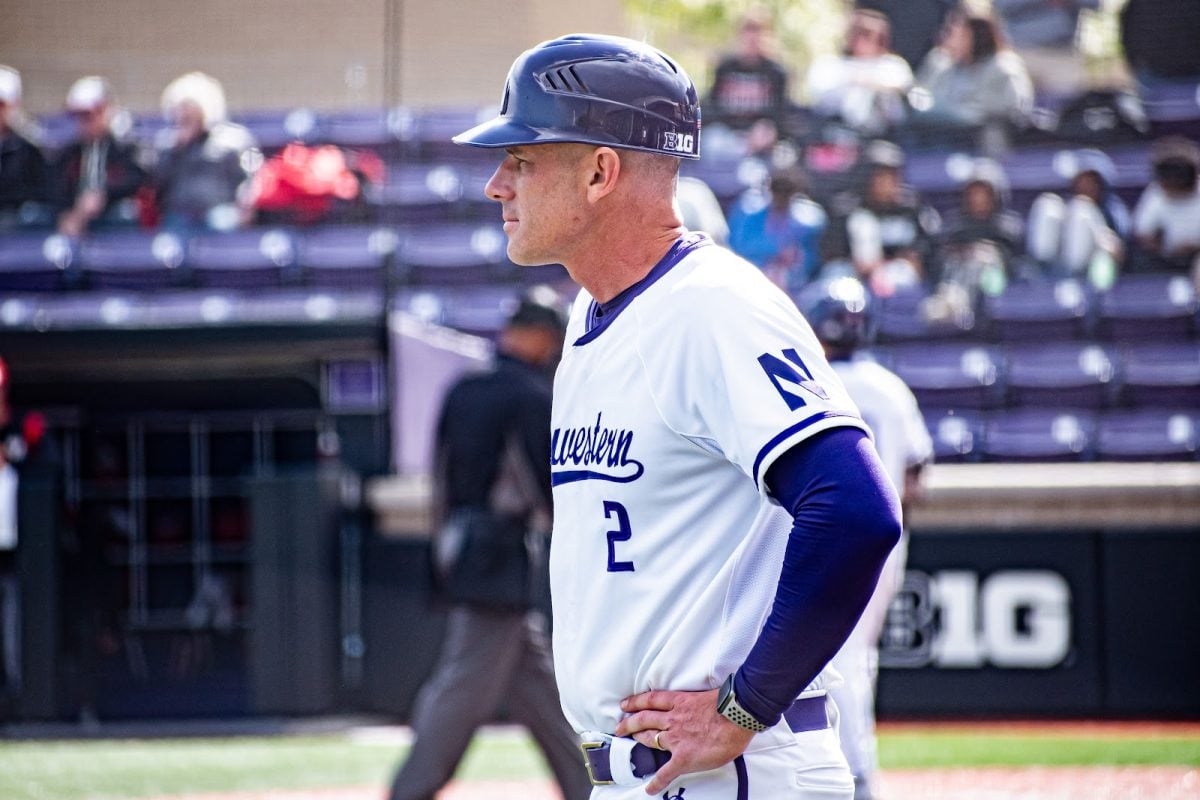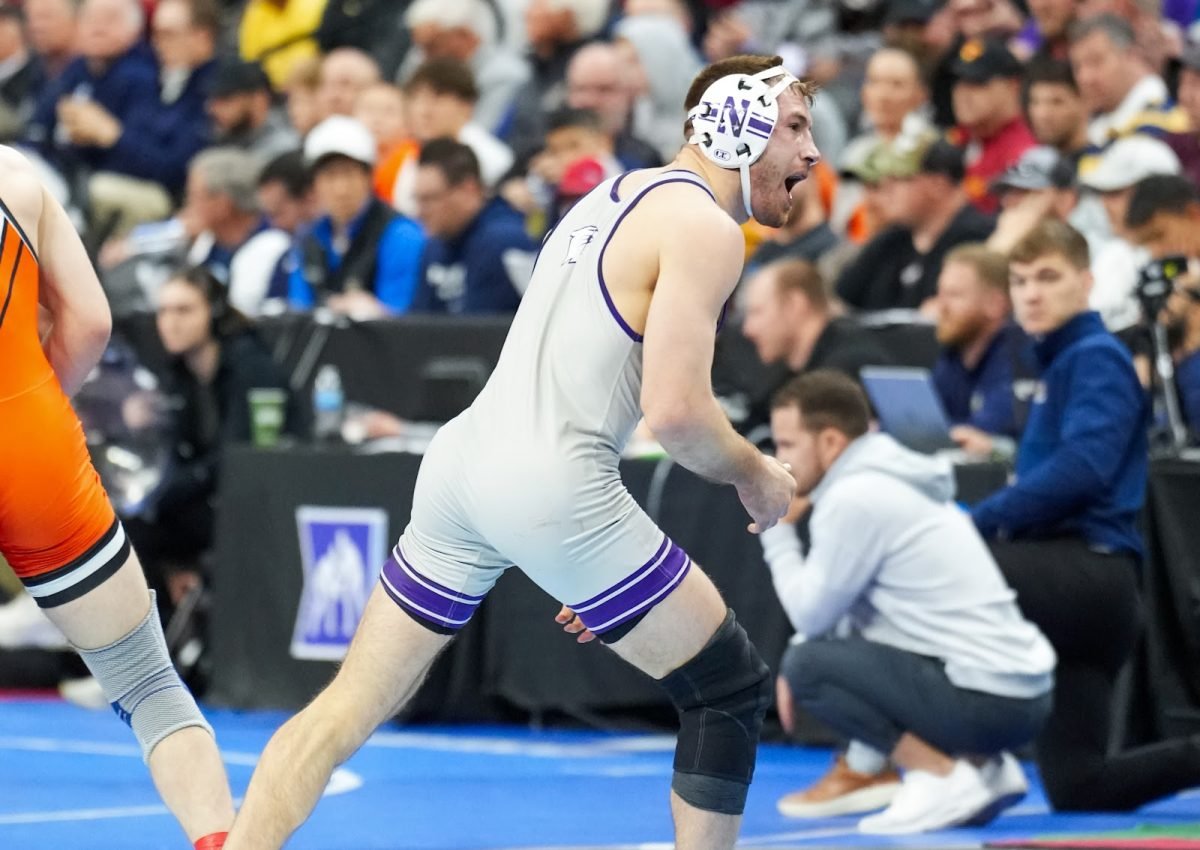America’s honeybee population is suddenly at an all-time high, according to the new Census of Agriculture. Those at the “Why Pollinators Matter & What You Can Do” speaker event Tuesday might take this with a grain of salt.
Jacquelyn Fitzgerald, a fifth-year Ph.D. candidate in plant biology and conservation, presented about the scientific aspects of pollinator conservation, such as the importance of diversity in bee species. She said European honeybees are actually not native to the U.S.
“Creating pollinator habitat is really important, including in cities,” Fitzgerald said. “These urban areas can be really important refuges for bees. As an example, the rusty patch bumble bee is here in Chicago. It’s a critically endangered bee.”
Tuesday’s event was the first on sustainNU’s itinerary for Earth Month. Attendees enjoyed bee-themed cake pops and dark chocolate covered honeycomb.
Students can sign up for future sustainability-related events through the sustainNU website, according to Sustainability Program Administrator Cria Kay.
“April is kind of a celebration of Earth and a time for us to be more intentional and think about the ways we interact with our environment,” Kay said.
The calendar includes tree planting and a tour to the Block Museum, among others. Many events are also open to the public and greater Evanston community.
Evanston resident Barry Grennan said he decided to attend the event because he heard about the importance of pollinators in the news and wanted to learn more.
“I’m familiar with bees, wasps and hornets, but I don’t know all the species,” he said.
NU is implementing more pollinator-friendly landscaping, including planting new species that don’t require mowing and introducing clover — a pollinator supporter — into the seed mix, said NU Campus Planner Sarah White.
Another speaker at the event, White said her team is also working with the Prairie Cats Ecological Restoration Club to envision a restoration for a small area directly west of Shakespeare Garden.
“Over time, we’ll get smarter, we’ll get better and hopefully keep providing a net ecological benefit on campus,” White said.
Fitzgerald said most of human vitamins and diet come from bee-pollinated plants — chocolate, apples and coffee are all extremely pollinator-dependent.
She said planting flowers that bloom during different times of the year, avoiding pesticides and choosing plants native to Illinois are ways to protect the local bee populations.
“Pollinators face threats from nearly every angle and supporting these critically important insects also helps us maintain a healthy ecosystem for the rest of us,” Fitzgerald said. “I know these things can seem pretty daunting, but there’s so much we can do to help protect them from both an individual and a collective level.”
Email: jillianmoore2027@u.northwestern.edu
Twitter: @jillian_moore7
Related Stories:
— Bee venom trend carves niche in beauty industry’s natural products market
— NU hosts launch of University of Toronto-Northwestern Decarbonization Alliance

